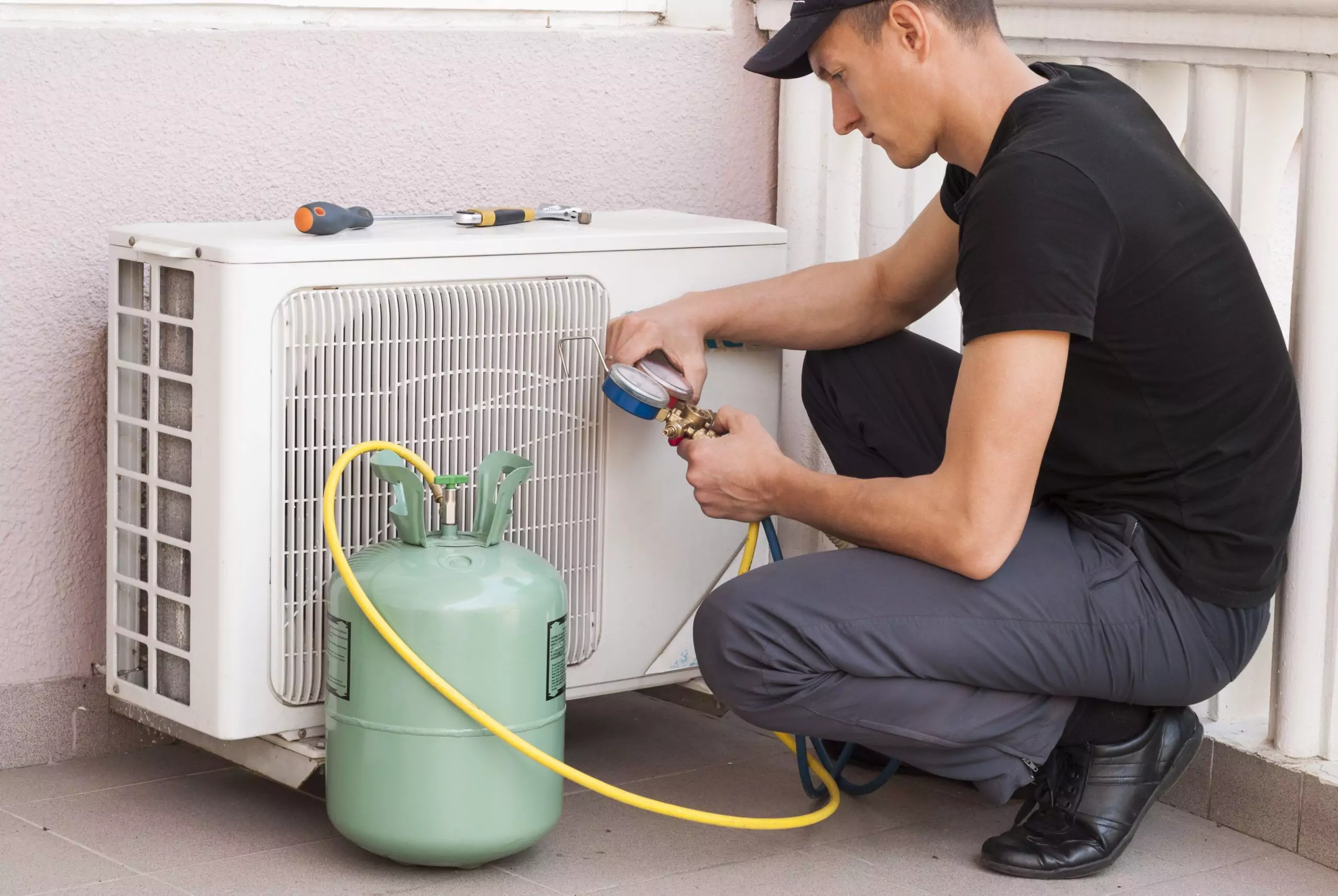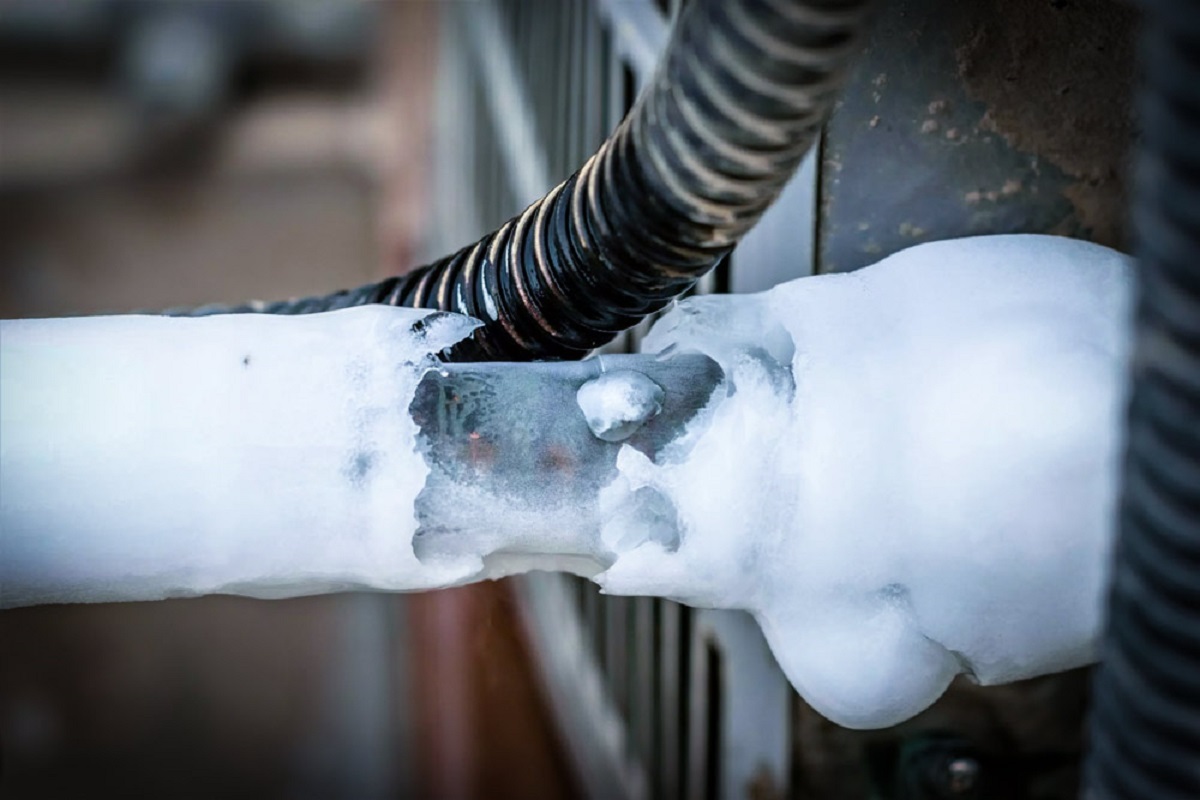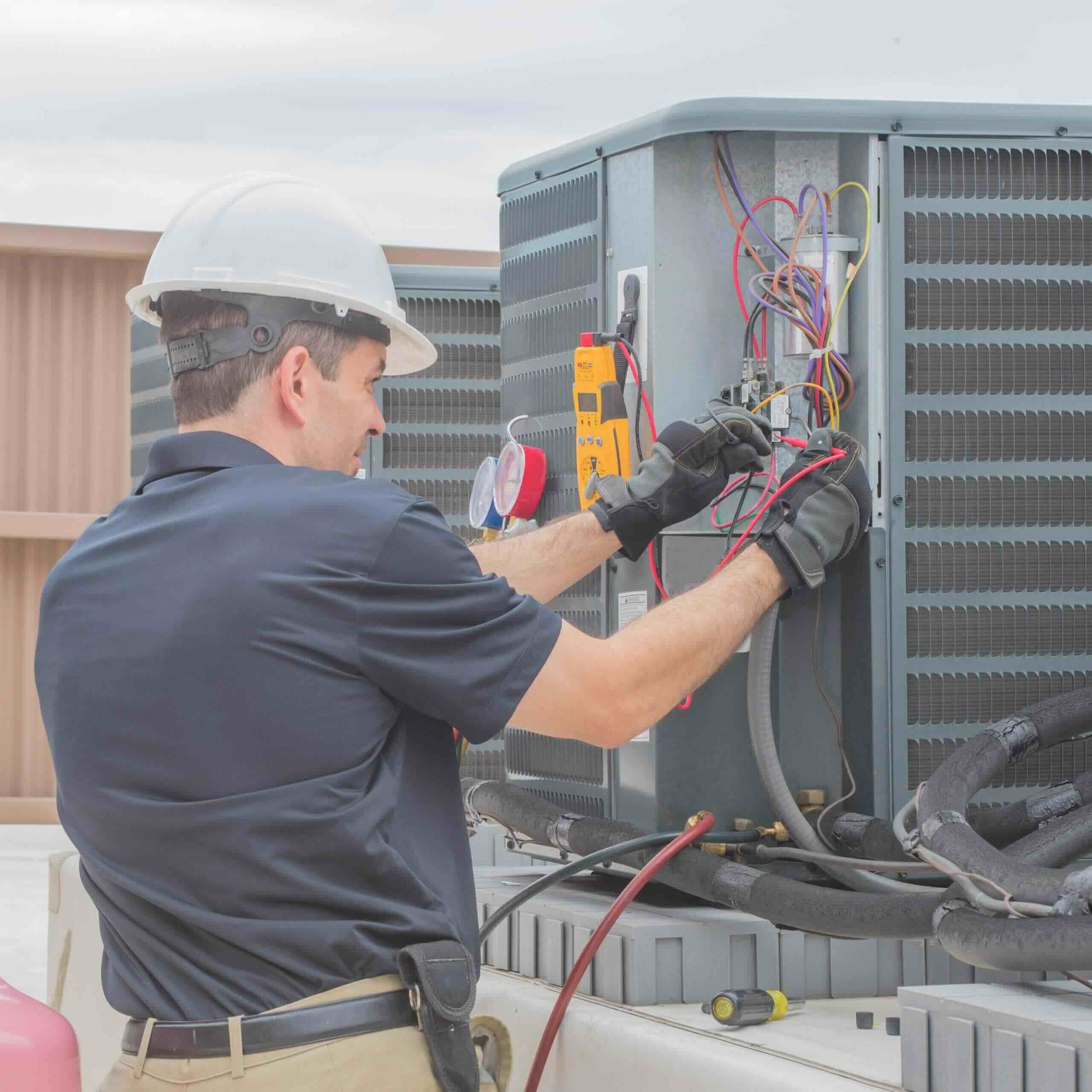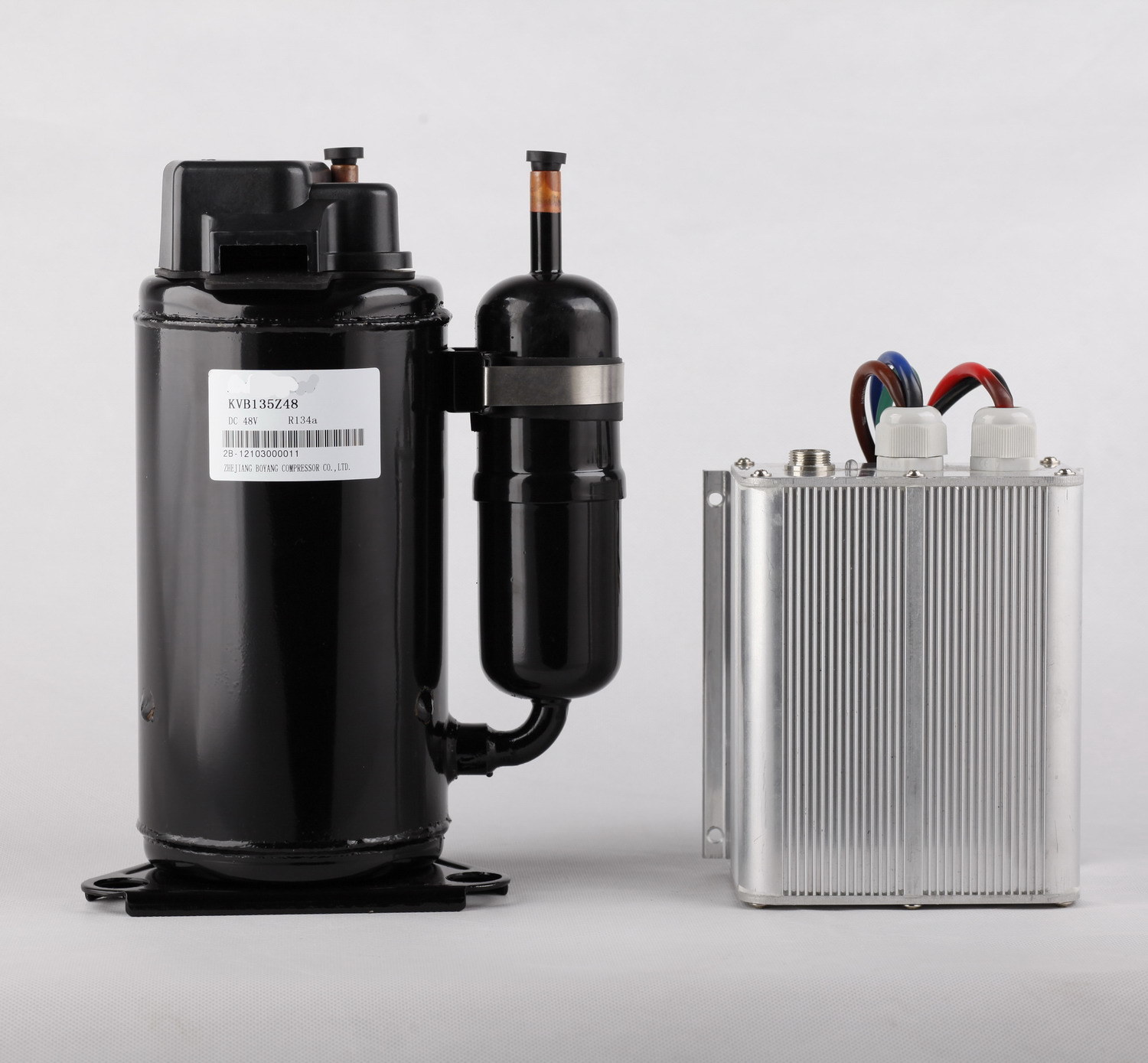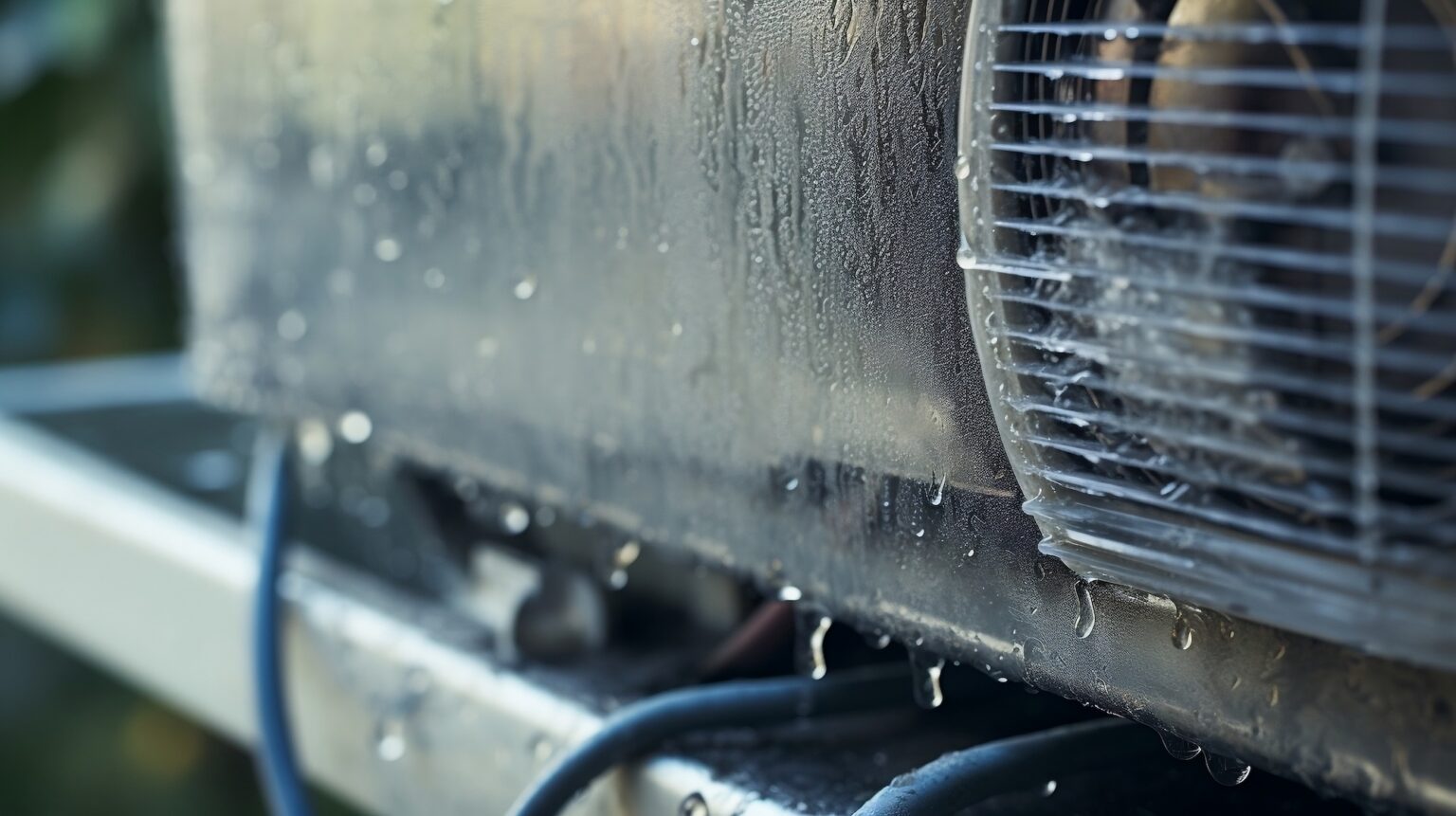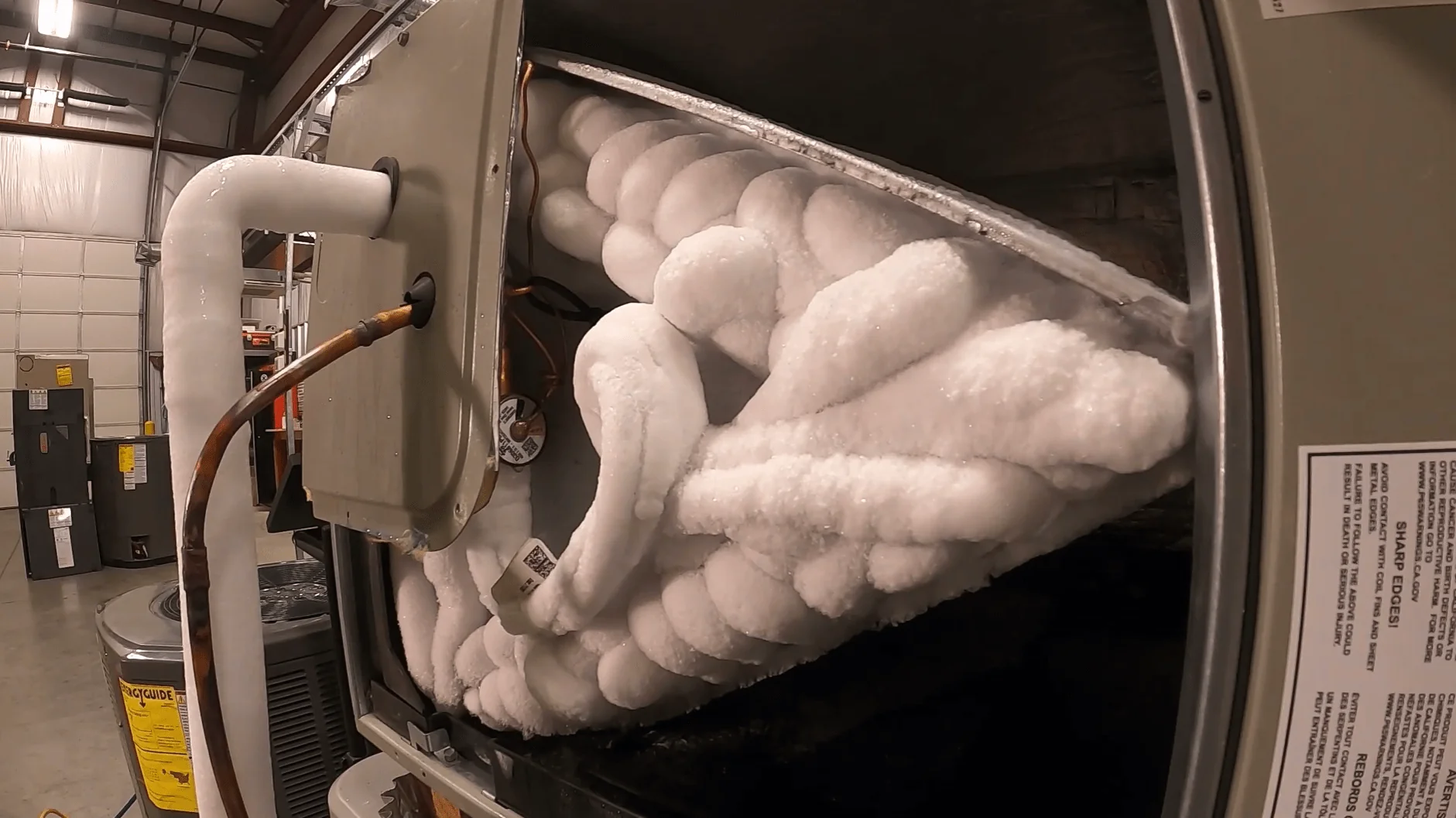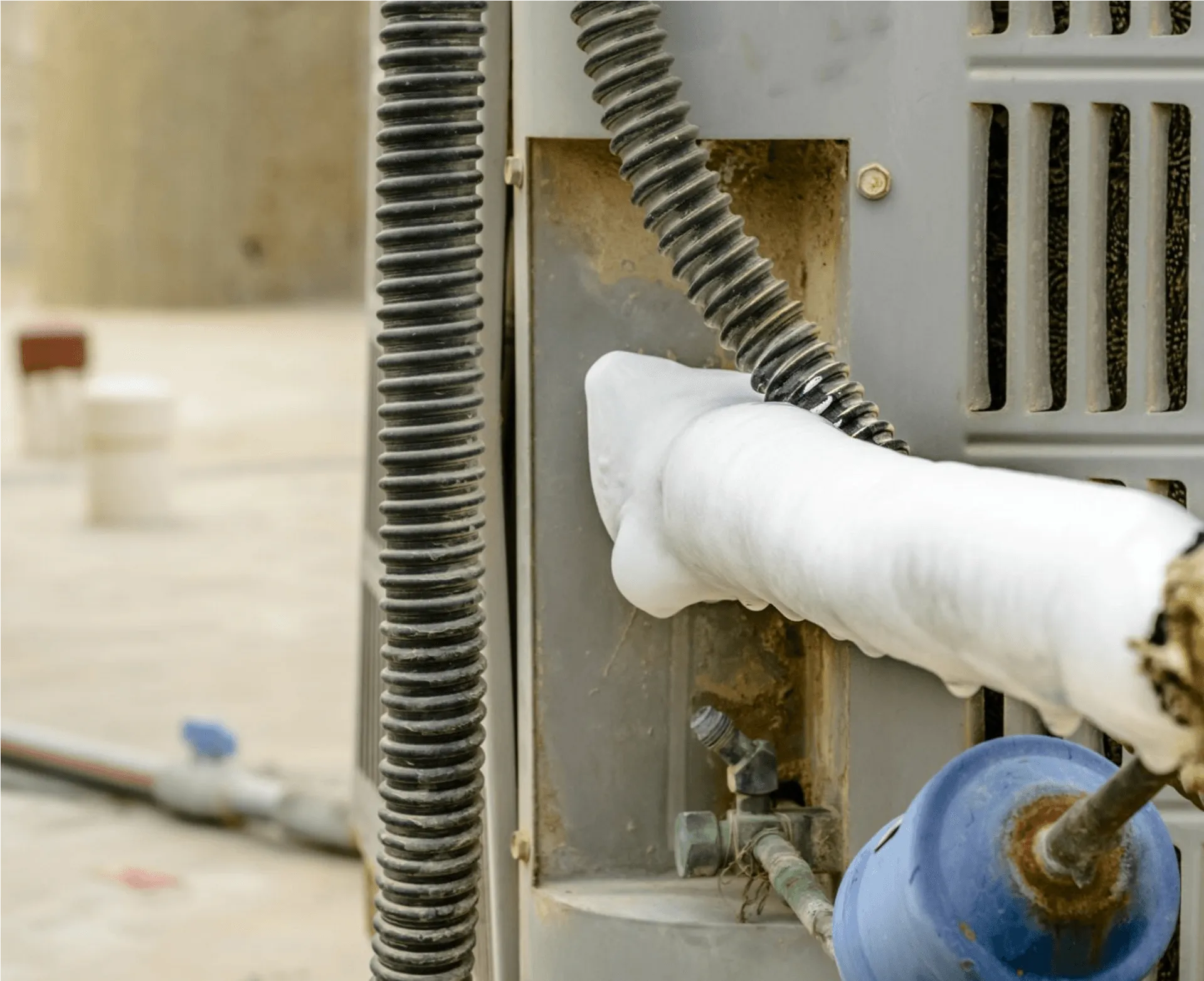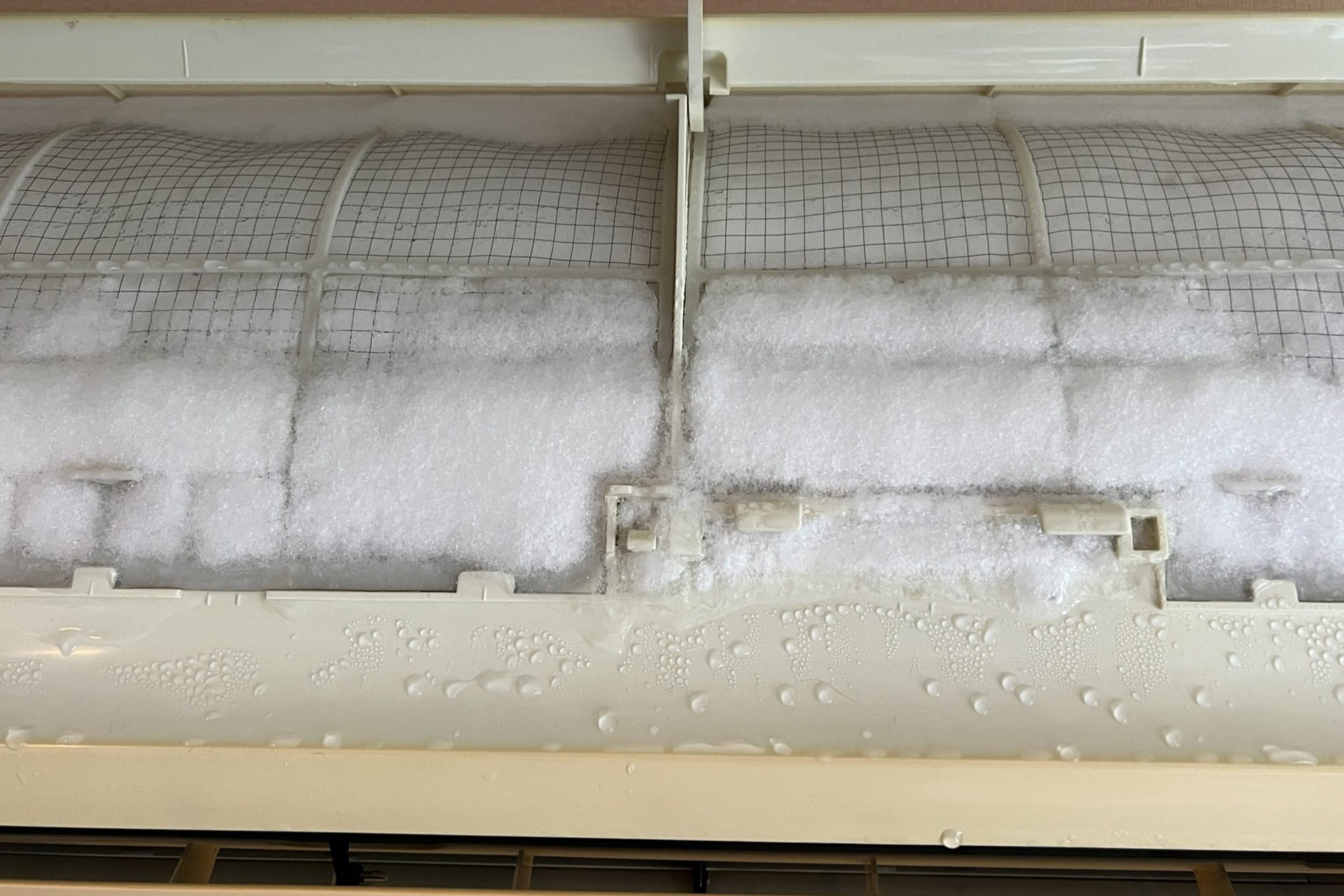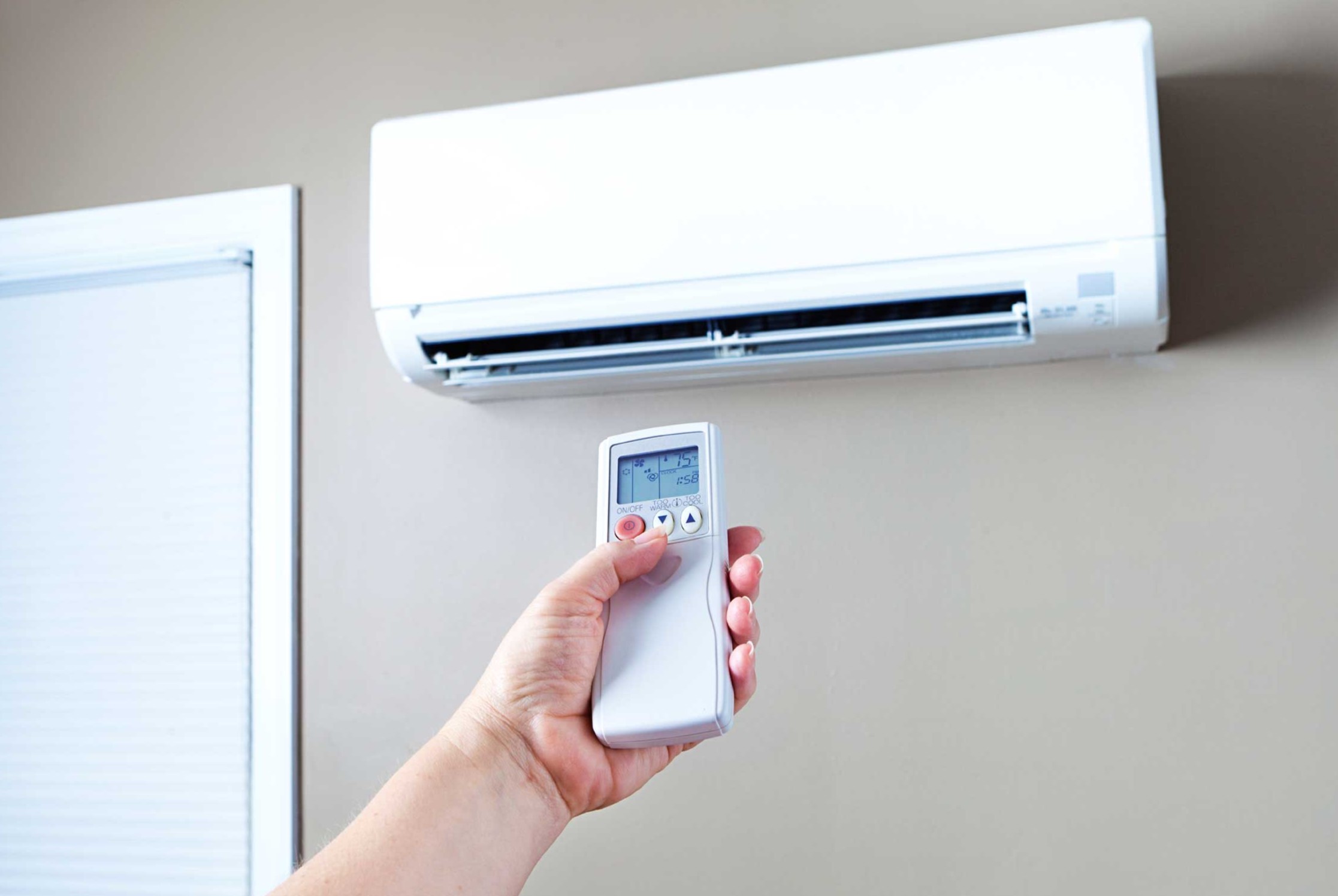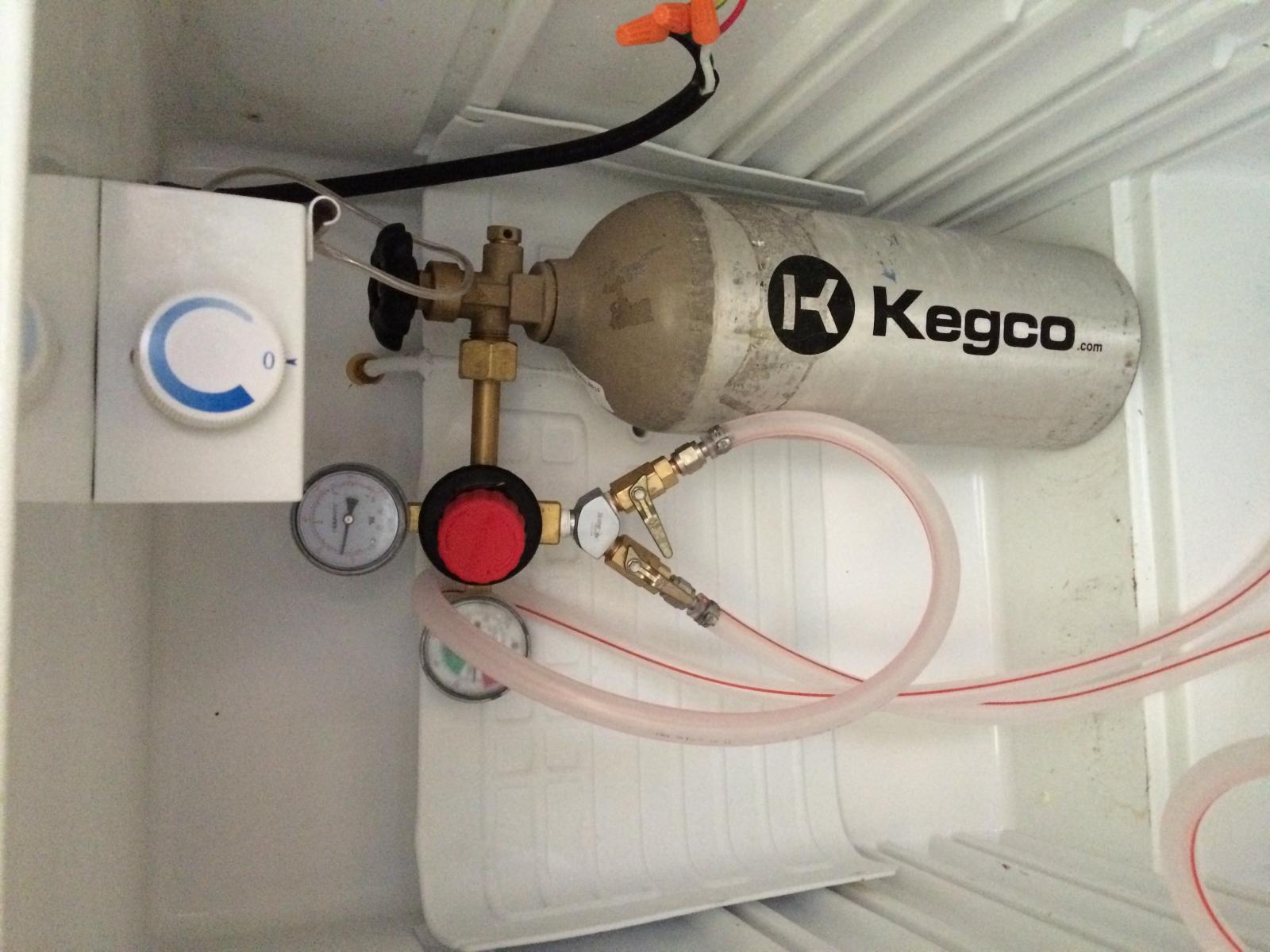Home>Home Maintenance>What Causes An Air Conditioner To Freeze Up
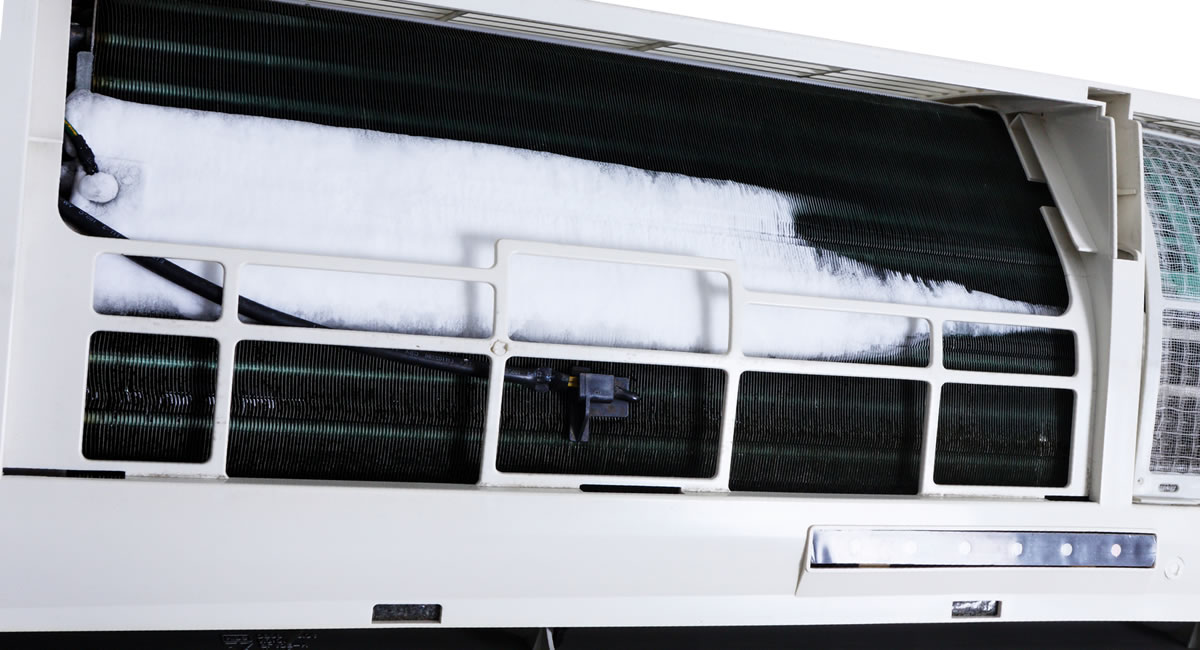

Home Maintenance
What Causes An Air Conditioner To Freeze Up
Modified: March 19, 2024
Find out the common reasons why an air conditioner may freeze up and how proper home maintenance can prevent this issue.
(Many of the links in this article redirect to a specific reviewed product. Your purchase of these products through affiliate links helps to generate commission for Storables.com, at no extra cost. Learn more)
Introduction
Welcome to our comprehensive guide on understanding what causes an air conditioner to freeze up. If you’ve ever experienced the frustration of your air conditioner suddenly turning into a frozen block of ice, then you know how important it is to identify the root causes of this issue and prevent it from happening in the future.
When an air conditioner freezes up, it not only disrupts your comfort but can also lead to costly repairs if left unaddressed. In this article, we will delve into the fundamental workings of air conditioning systems, explore the common causes of freezing, discuss the potential effects, and provide preventive measures to keep your unit running smoothly.
Whether you are a homeowner or a renter, understanding the basics of air conditioning systems can help you identify and resolve issues that cause freezing. Let’s start by familiarizing ourselves with the components and functioning of an air conditioner.
Key Takeaways:
- When your air conditioner freezes up, it’s often due to issues like insufficient airflow, low refrigerant, or a dirty evaporator coil. Regular maintenance and keeping vents clear can prevent this frustrating problem.
- A frozen air conditioner can lead to reduced cooling efficiency, higher energy bills, and potential damage to the unit. By taking proactive measures like regular maintenance and thermostat checks, you can avoid these issues and enjoy a comfortably cool home.
Understanding the Basics of Air Conditioning Systems
Before diving into the causes and prevention of air conditioner freezing, it is crucial to have a solid grasp of how these systems work. By understanding the components and the mechanisms behind air conditioning, you will be better equipped to troubleshoot issues and maintain your unit’s optimal performance.
Components of an Air Conditioner
An air conditioner consists of several key components that work together to cool the air in your home. These components include:
- Compressor: The compressor is the heart of an air conditioning system. It circulates refrigerant throughout the system, playing a vital role in the cooling process.
- Condenser coil: The condenser coil is responsible for releasing heat from the refrigerant, allowing it to cool down and liquify.
- Evaporator coil: The evaporator coil absorbs heat from the indoor air, cooling it down and dehumidifying it.
- Expansion valve: The expansion valve controls the flow of refrigerant into the evaporator coil, regulating its temperature and pressure.
- Blower fan: The blower fan circulates the conditioned air throughout your home, ensuring even distribution.
- Thermostat: The thermostat allows you to set and control the desired temperature in your home, triggering the air conditioner to turn on or off accordingly.
How Air Conditioners Work
An air conditioner uses a thermodynamic cycle known as the refrigeration cycle to remove heat from indoor air and expel it outside. Here’s a simplified explanation of how the cycle works:
- The refrigerant, a chemical compound that can change from a gas to a liquid and vice versa, starts in the evaporator coil. As indoor air blows over the coil, the refrigerant absorbs heat from the air, turning it into a warm gas.
- The warm refrigerant gas flows to the compressor, where its temperature and pressure increase significantly. This compresses the gas, making it even hotter.
- The hot refrigerant gas then moves to the condenser coil, located outside your home. Here, the heat is released into the outdoor air as the refrigerant condenses back into a liquid state.
- The liquid refrigerant, still under high pressure, passes through the expansion valve, where it undergoes a rapid drop in pressure. This causes the refrigerant to evaporate and cool down once again.
- The cycle repeats, with the cool refrigerant flowing back into the evaporator coil to absorb more heat from the indoor air.
- The blower fan circulates the conditioned air throughout your home, keeping you cool and comfortable.
Now that you have a basic understanding of the components and functioning of an air conditioning system, let’s explore the common causes of air conditioner freezing and how to prevent them.
Causes of Air Conditioners Freezing Up
When an air conditioner freezes up, it is typically a sign that something is amiss within the system. Several factors can contribute to this problem. Let’s take a closer look at the common causes of air conditioner freezing:
Read more: What Causes A Refrigerator To Freeze Up
1. Insufficient Airflow
Insufficient airflow is one of the primary culprits behind a frozen air conditioner. When there is not enough air moving across the evaporator coil, the refrigerant within the coil can drop below freezing temperatures, causing ice to form. This reduced airflow can be caused by various issues, such as clogged air filters, closed or obstructed vents, or a faulty blower motor.
2. Low Refrigerant Charge
A low refrigerant charge can also lead to air conditioner freezing. Refrigerant is responsible for absorbing heat from the indoor air, and if the level of refrigerant is insufficient, the evaporator coil may get too cold and freeze up. Low refrigerant levels can be caused by leaks in the system or improper installation.
3. Dirty Evaporator Coil
A dirty evaporator coil can hinder the heat absorption process and disrupt the normal flow of refrigerant. Over time, dust, dirt, and debris can accumulate on the coil, reducing its ability to cool the air effectively. This can lead to the coil becoming excessively cold, resulting in ice formation.
4. Malfunctioning Blower Fan
A malfunctioning blower fan can cause a decrease in airflow, which can contribute to air conditioner freezing. If the fan is not running at the proper speed or is not functioning at all, it will not adequately distribute air over the evaporator coil. As a result, the coil can become too cold and freeze.
Read more: What Causes Ice Maker To Freeze Up
5. Thermostat Issues
Thermostat issues can also play a role in air conditioner freezing. If the thermostat is faulty or improperly calibrated, it may cause the unit to run longer than necessary, resulting in the evaporator coil becoming excessively cold. Additionally, a thermostat set to a temperature that is too low can also lead to freezing.
6. Ductwork Problems
Problems with the ductwork can contribute to air conditioner freezing as well. Leaks or obstructions in the ducts can restrict airflow, causing the evaporator coil to become too cold. Poorly insulated ducts can also allow warm air from unconditioned spaces to mix with the cool air, leading to temperature imbalances and potential freezing.
Now that we’ve explored the causes of air conditioner freezing, in the next section we will discuss the potential effects of a frozen air conditioner and why it’s crucial to address these issues promptly.
Effects of a Frozen Air Conditioner
A frozen air conditioner is not only an inconvenience but can also have several detrimental effects on your cooling system and overall home comfort. Let’s take a look at the potential consequences of a frozen air conditioner:
1. Reduced Cooling Efficiency
When the evaporator coil freezes, it becomes covered in ice, effectively blocking the flow of air and reducing the cooling efficiency of your air conditioner. As a result, your home may take longer to reach the desired temperature, and you may experience uneven cooling throughout different areas of your house. This decreased cooling efficiency can lead to discomfort and frustration, especially during hot summer months.
Read more: Why Is My RV Air Conditioner Freezing Up
2. Increased Energy Consumption
A frozen air conditioner can also cause a significant increase in energy consumption. When the coil is covered in ice, it forces the system to work harder to cool your home, as the ice insulates the coil, making it less effective at absorbing heat. This increased workload not only leads to higher energy bills but also puts unnecessary strain on the various components of your air conditioning system, potentially reducing its lifespan.
3. Potential Damage to the Unit
If a frozen air conditioner is left unaddressed for an extended period, it can cause damage to the unit itself. As the ice builds up on the evaporator coil, it can start to spread to other parts of the system, such as the blower fan or the refrigerant lines. The expansion of ice can lead to mechanical stress and even damage the components. Additionally, the melting ice can result in water leakage, potentially causing water damage to your home.
It is crucial to take immediate action when you notice your air conditioner freezing up to prevent these negative effects. In the next section, we will discuss preventive measures you can take to avoid air conditioner freezing and keep your system running smoothly.
Preventive Measures to Avoid Freezing of Air Conditioners
To prevent your air conditioner from freezing up and ensure its optimal performance, it is essential to implement regular maintenance and take proactive measures. By following these preventive measures, you can minimize the risk of encountering freezing issues and prolong the lifespan of your air conditioning system:
1. Regular Maintenance
Schedule routine maintenance for your air conditioner with a professional HVAC technician. Regular maintenance includes inspecting the components, cleaning or replacing air filters, lubricating moving parts, and checking for any potential issues that may lead to freezing.
Read more: Why Is My Air Conditioner Lines Freezing Up
2. Ensuring Proper Airflow
Ensure proper airflow by keeping vents and registers unobstructed. Avoid blocking them with furniture, curtains, or other objects that can impede the movement of air. Additionally, regularly clean dust and debris accumulated around vents to maintain good airflow.
3. Checking and Maintaining Refrigerant Levels
Regularly check the refrigerant levels in your air conditioner. Low refrigerant levels can cause the evaporator coil to freeze. If you suspect a refrigerant leak or improper levels, contact a professional technician to recharge or repair the system.
4. Cleaning and Clearing the Evaporator Coil
Keep the evaporator coil clean and clear of dirt and debris. Regularly inspect and clean the coil to prevent the accumulation of dust, which can impede proper heat transfer and lead to freezing. You can use a soft brush or a vacuum cleaner with a brush attachment to clean the coil gently.
5. Keeping the Blower Fan in Good Condition
Check the blower fan regularly to ensure it is functioning properly. Clean or replace the fan blades if they are dirty or damaged. A malfunctioning blower fan can contribute to freezing by reducing airflow over the evaporator coil.
Read more: Why Does My Window Air Conditioner Freeze Up
6. Regularly Inspecting and Adjusting the Thermostat
Periodically inspect and calibrate your thermostat to ensure it is functioning accurately. A faulty thermostat can cause the air conditioner to run longer than necessary, leading to freezing. Adjust the temperature settings according to your comfort needs and the manufacturer’s recommendations.
7. Maintaining Clean and Clear Ductwork
Regularly inspect and maintain the cleanliness of your ductwork. Clean or replace air filters, remove any blockages, and seal any leaks or gaps in the ducts. Properly insulated and well-maintained ductwork ensures proper airflow and helps prevent temperature imbalances that can contribute to freezing.
By following these preventive measures and addressing any issues promptly, you can avoid the frustration and inconvenience of a frozen air conditioner. Regular maintenance and attentiveness will help keep your air conditioning system running efficiently and effectively throughout the year.
Now that you are equipped with knowledge about preventive measures, let’s conclude this guide on what causes an air conditioner to freeze up.
Conclusion
A frozen air conditioner can quickly turn a comfortable home into an uncomfortable one. Understanding the causes of air conditioner freezing and implementing preventive measures is essential to maintain the efficiency and longevity of your cooling system.
We have explored the basics of air conditioning systems, including the components and how they work together to cool your home. We have also discussed the common causes of air conditioner freezing, such as insufficient airflow, low refrigerant charge, dirty evaporator coil, malfunctioning blower fan, thermostat issues, and ductwork problems.
Furthermore, we have discussed the effects of a frozen air conditioner, including reduced cooling efficiency, increased energy consumption, and potential damage to the unit itself. It is crucial to address freezing issues promptly to prevent discomfort, high energy bills, and costly repairs.
To avoid air conditioner freezing, it is recommended to follow preventive measures, such as regular maintenance, ensuring proper airflow, maintaining optimal refrigerant levels, cleaning and clearing the evaporator coil, keeping the blower fan in good condition, regularly inspecting and adjusting the thermostat, and maintaining clean and clear ductwork.
By incorporating these preventive measures into your air conditioning maintenance routine, you can minimize the risk of encountering freezing issues and ensure the smooth operation of your system.
Remember, when it comes to air conditioner freezing, prevention is key. Stay proactive, monitor your system regularly, and seek professional help if you notice any signs of freezing or other issues.
We hope this comprehensive guide has equipped you with the knowledge to understand what causes an air conditioner to freeze up and given you the tools to prevent it from happening. Enjoy the cool comfort of a well-functioning air conditioning system all year round!
Frequently Asked Questions about What Causes An Air Conditioner To Freeze Up
Was this page helpful?
At Storables.com, we guarantee accurate and reliable information. Our content, validated by Expert Board Contributors, is crafted following stringent Editorial Policies. We're committed to providing you with well-researched, expert-backed insights for all your informational needs.
